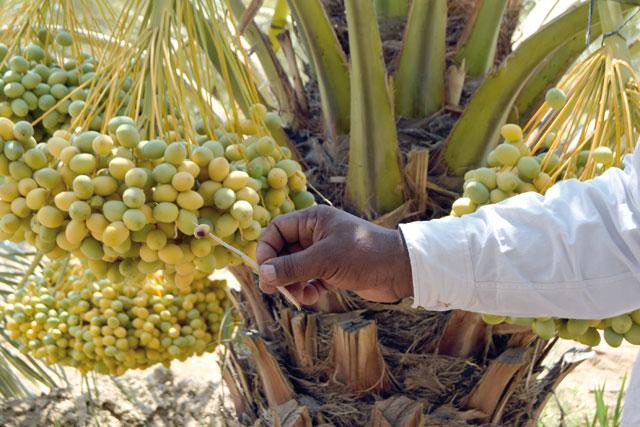- Local News
- Sun-2020-08-16 | 02:50 pm

The workshop, held in Southern Shouneh, is part of the technical cooperation project between FAO and the Ministry of Agriculture titled "Support to the assessment and control of red palm weevil in Jordan”, aiming to enhance contribution of date palm production to the economic growth and improved livelihoods of its producers and traders, according to a statement from the UN agency.
The workshop was implemented with the facilitation of trained employees from the Agriculture Ministry, and it focused on sharing information on: The integrated management of the Indian red palm weevil, the collaboration between the Agriculture Ministry and the farmers to control the red palm weevil infections, and advanced techniques to detecting and controlling the infestation at farm level.
The information exchange was enhanced by the distribution of smart Ferrolure and smart dispensing items to the training staff, to be used during the workshop, the statement said.
Building on the results of this first encounter, a series of similar workshops will be held in the coming weeks in Nothern Shouneh, Deir Alla and Azraq.
Jordan’s date palm plantation sector is facing multiple challenges, the most critical of them being the spread red palm weevil (RPW), a dangerous and destructive pest that kills trees or sapping them. Based on the reports from the Agriculture Ministry, there has been increased incidences of RPW infections across the country, threatening the date palm sector, noted the statement.
As date production is an important contributor to rural food security and livelihood maintenance, this issue warrants immediate attention, FAO said in the statement.
This project falls within FAO’s regional initiatives of building resilience to food security and nutrition (RI-FSN) shocks across the Near East and North Africa.









